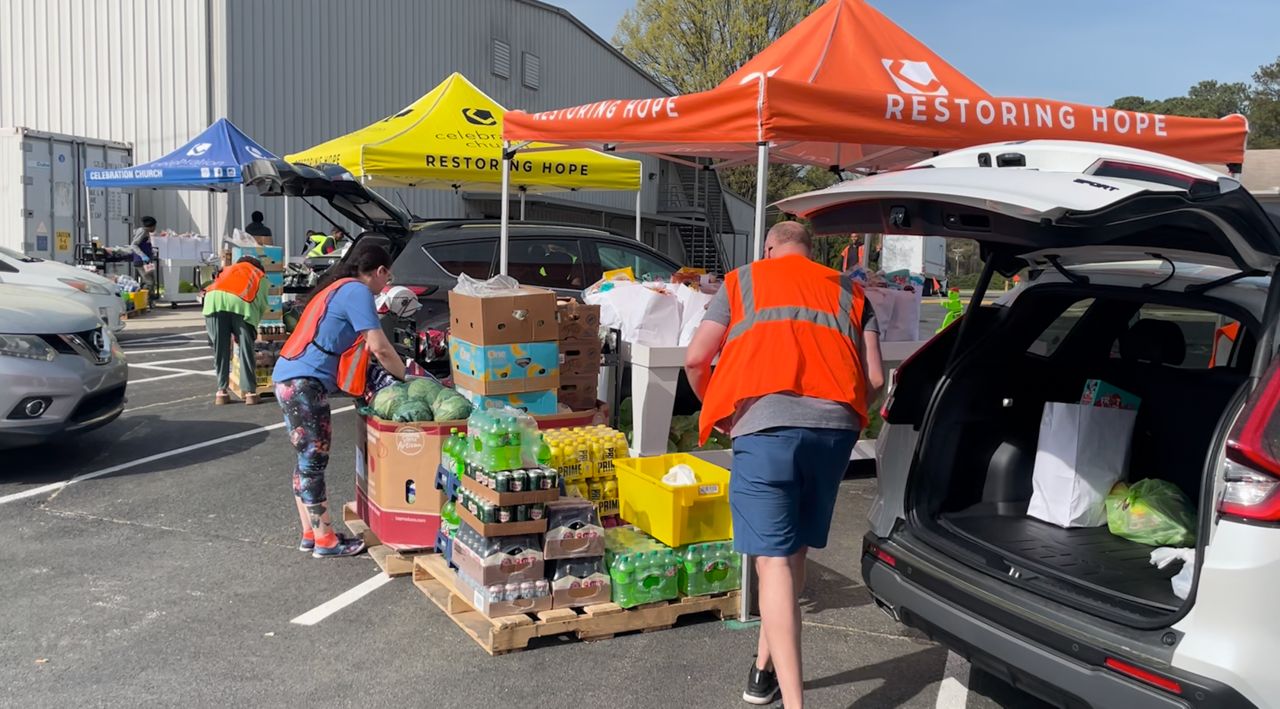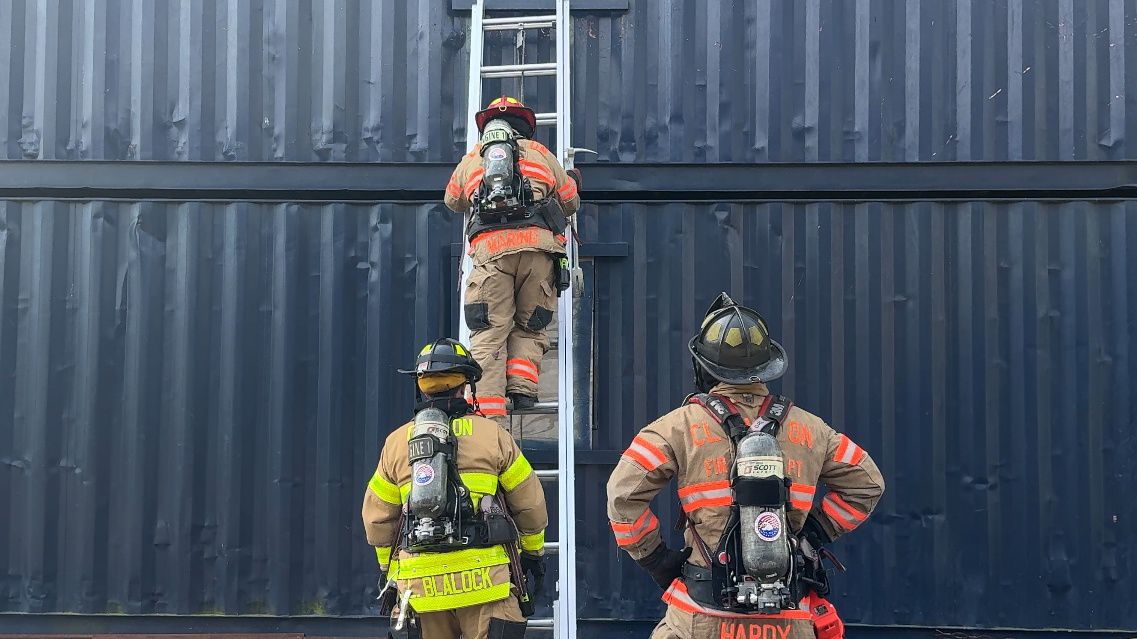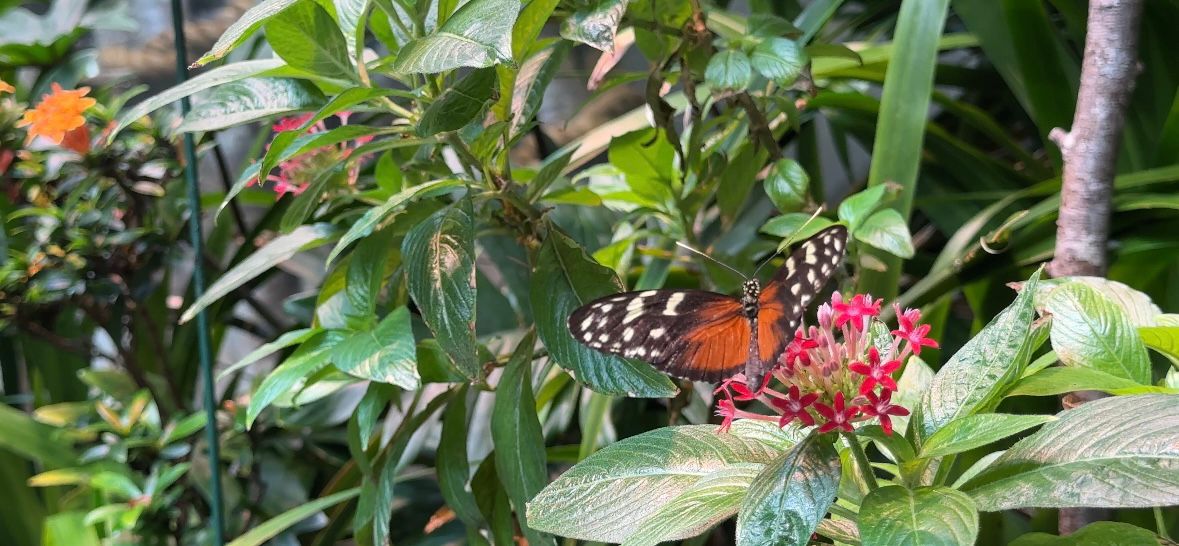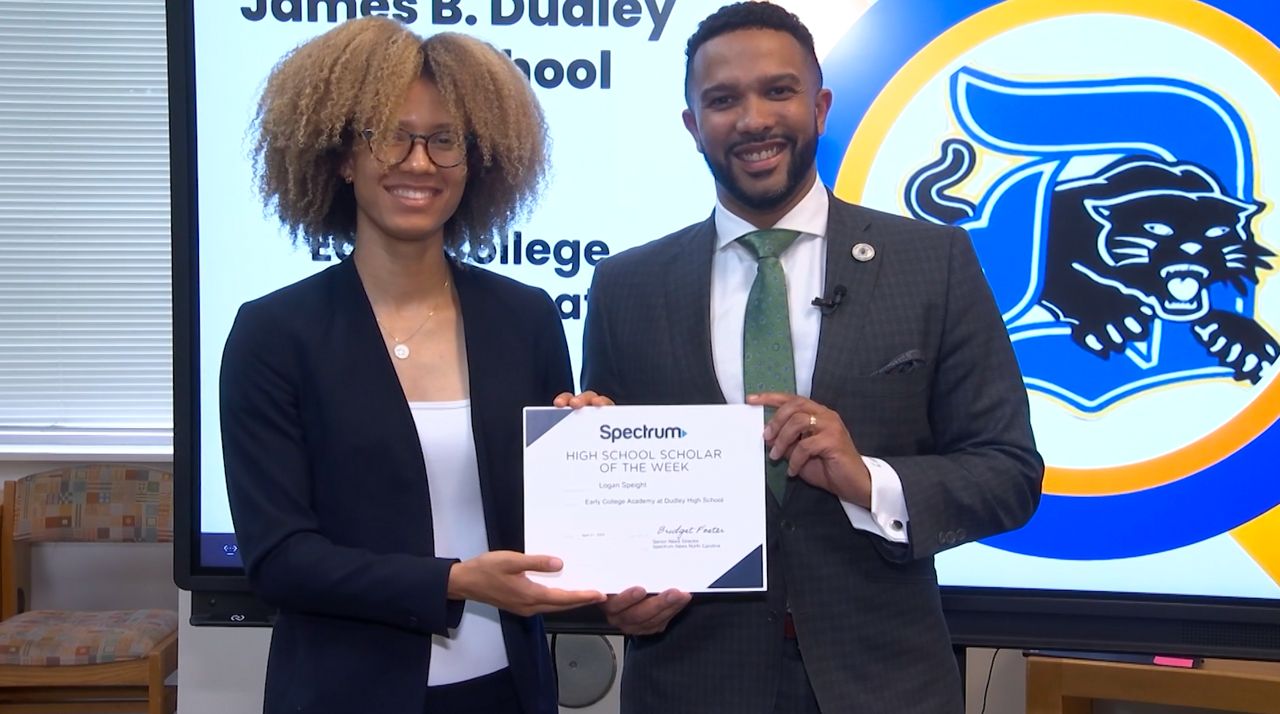RALEIGH, N.C.— Sunday marked five years since George Floyd was killed by police. Today, his family continues to carry on his legacy.
What You Need To Know
- George Floyd was killed on May 25, 2020
- He is a North Carolina native, born in Fayetteville in 1973
- His family is keeping his legacy alive through avenues like the Floyd Family Center
- George's words "I can't breathe" are engraved at the North Carolina Freedom Park in downtown Raleigh
A big teddy bear, that's how George Floyd’s uncle, Roger Floyd, remembers his nephew.
“His build could be very intimidating. But when you had an opportunity to engage with him, just his personality. He could be a practical joker, and that's what people don’t really know about him,” Roger said.
Roger was one of the first people to hold George when he was born in Fayetteville in 1973.
“I had graduated down at Fayetteville State in '73. I took a teaching position here in Wake County Schools and our homecoming, traditionally our homecoming at Fayetteville (State) is in October, and shortly after he was born," Roger Floyd said, "I had an opportunity to meet him and hold him."
“That day May 25, 2020 is a day that will live in infamy. It really is such a tragic loss to the family and to the world,” Roger Floyd said.
George was killed by a Minneapolis police officer after being accused of attempting to use a counterfeit $20 bill.
His death is referred to by his family as the "Day of Enlightenment," and re-ignited the Black Lives Matter movement across the world.
“The world said ‘enough is enough.’ Those demonstrations around the world, it triggered something in the individual, no matter what country they were in, because they could relate,” Roger Floyd said. “Because something like that perhaps was taking place in their own space. And they said, ‘I can relate to that, and that should not be, and let’s keep that sentiment alive.'”
Video of George Floyd’s killing were seen around the world. His words “I can’t breathe” became a rallying cry.
“That is something that will always remind us, as humans, how short life can be snuffed out,” Roger Floyd said.
Roger Floyd said George Floyd’s words are a reminder of what took place and the impact it left on others.
“We felt great as a family, that this situation was looked at so globally and to a point that individuals that you wouldn’t even think would be foresting, that just stood out in the world,” Roger Floyd said.
Now George’s words, “I can’t breathe,” are engraved at the North Carolina Freedom Park in Raleigh.
The park, located in the capitol’s downtown, broke ground five months after his death but had been in planning for years. The park, anchored by the "Beacon of Freedom," highlights 20 "Voices of Freedom," words from African Americans throughout the state’s history.
Roger Floyd said he sees this space as a nurturing spot for those who visit, including the many school groups that pass through.
“I get the impression that they feel safe, that’s what its is all about,” Roger Floyd said. “How does this space impact you as an individual? Does it create some type of change in you? What did it emote in you that you feel you can leave this spot and make a difference back into your own community first?”
Five years later, Roger Floyd said, the family has processed George’s death.
“We didn't get angry with God, and we got to a place, and we just basically understood the foundation of what's happening in the world,” Roger Floyd said.
George's stepmother, Ruby Floyd, said his death completely changed her life, and that she doesn't feel there's been enough change since he was killed, five years ago.
"It’s devastating still. It won’t ever go away. It will always be in the limelight,” Ruby Floyd, a Cumberland County resident, said.
His death has changed things for her, like answering calls and emails.
“People call. I have gotten calls where where people have said some terrible things to me. 'I know where you live,' you know, 'I know where you’re at.' And that’s why I won’t pick up my phone and let the answering machine pick it up," she said.
The family continues to honor George through avenues like the Floyd Family Center, which hosts different community engagement events and programs.
Ruby Floyd is proud George's sister helped establish the George Floyd Foundation and created a scholarship at Fayetteville State University in his name.
“How can we impact the community that we live in, the underserved, marginalized communities,” Roger Floyd said.
He said another avenue he continues George’s legacy is through working with local police to strengthen police relationships with the community.
“You know, just start and stop, that's not going to make that difference. It has to be ongoing to make that difference, and I believe we are not there yet,” Roger Floyd said.
He said the family also hopes to see the George Floyd Justice in Policing Act passed by Senate.
“We want to be able to leave our home in the morning and return in the evening as well, so do police officers. They have family. They want to come out, they want to do their job, and they want to return home to their families as well,” he said.
“We are a part of the human race, and we are so much better together than we are apart. There may be differences, but when we come together, change is very possible,” Roger Floyd said.
Ruby Floyd is hopeful that legislative policies will help end racial profiling.
“It hasn’t changed. Some places…might have improved. But the stopping and racial profiling…it has not changed. We’re afraid for our Black men and Black children and grandchildren. Because it has not changed,” she said.







